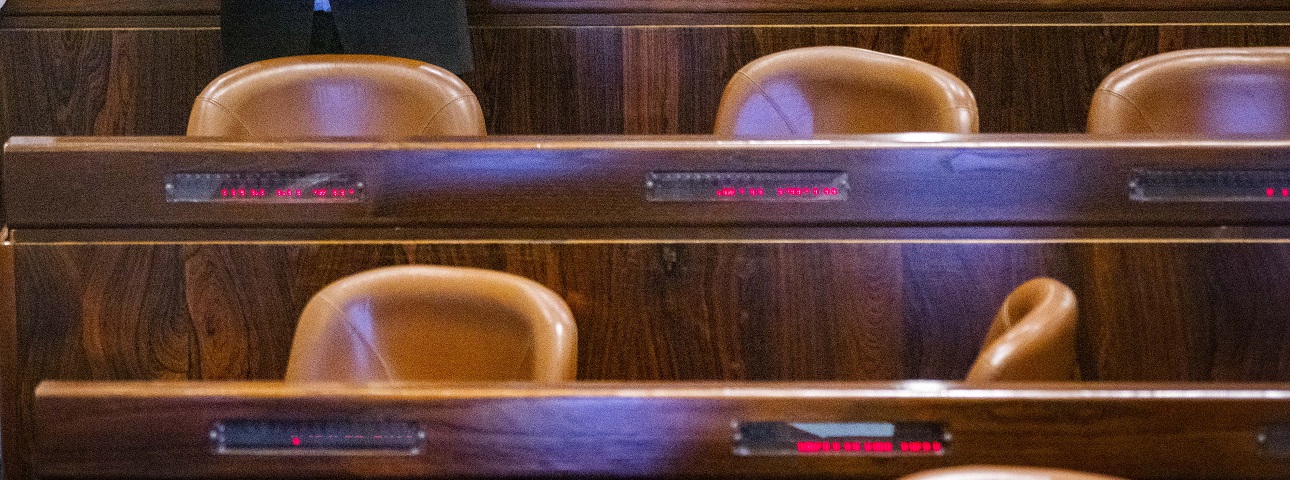Fixing the System: A New Look
The current political instability is the result a breach of accepted rules of the game that are based on assumptions about the nature of politics—and even of human nature.

The current political crisis is not just another manifestation of the old and familiar failings of the system of government in Israel, for example – the deep political split. Nor is it simply an expression of the growing strength of personality politics that turns elections into a referendum about Netanyahu. More than anything, it reflects a breach of accepted rules of the game that are based on simple assumptions about the nature of politics—and even of human nature.
To begin with, who could ever have imagined that members of the Knesset who only recently took their seats after an exhausting election campaign would give themselves the boot? We always thought that they hold on tight to their seats and are willing to do anything to stay there. This assumption has been proven wrong: they gave up this security immediately or soon after the election.
Second, we now know that the size of a Knesset faction isn't all that important. It doesn’t even determine who can serve as Prime Minister. The only thing that matters is one’s strategic location on the political map. Even inside the Government, the balance of power between the blocs is secondary: the last two governments were based on parity, despite the clear advantage held by the right wing in the Netanyahu-Gantz rotation government and by the left wing- in the Bennett-Lapid rotation government.
What seem like laws of nature were violated, precedents were set, the Rubicon was crossed. There is no going back, not even if and after Netanyahu retires. The possibility of dissolving the Knesset on the fly is now part of the Israeli political menu and is with us to stay. The coalition game will also never be the same, now that we have had a Prime Minister from one of the smallest factions in the Knesset. The most likely outcome of these changes will be, once again, early elections.
This instability undermines governance, and especially government's ability to adopt policies that can provide long-term answers to problems. Even worse, frequent elections weaken citizens’ trust in the basic mechanisms of democracy—elections—which are supposed to create a new government (or a new term for the current one) that will hold office for a reasonable length of time. If we aren’t careful, a flawed reform of the system will be introduced to address the problem (direct election of the Prime Minister, a presidential system, and other remedies that are worse than the disease). The most appalling possibility of all, is that democracy might be replaced by some other regime.
So, what can we do? Take a look around and ask what other democracies do to prevent situations like this. We did this and learned that hardly any country has a law stipulating that failure to pass the State budget leads automatically to new elections. In addition, in most parliamentary democracies, the sitting legislature cannot vote itself out of existence; even where the option exists, in most cases it requires a special majority (such as three-fifths of the members of parliament).
What is needed is to strengthen our parliamentarians and protect them from themselves, and especially- from those who are willing to keep shuffling the deck (calling elections) until they get the result they want. We must say to each and every Knesset member, from party leaders to the farthest back-bencher: “You were elected? Find a way to work things out!”
To achieve this, we need to establish, first of all, that the Knesset cannot be dissolved until every last possibility of forming a government has been exhausted. Second, its dissolution must be supported by a very large majority (72, or even 80 MKs). Third, the link between passing the budget and dissolution of the Knesset must be eliminated.
If we wish to guarantee a stable outcome, we should also add a rule stipulating that after two unsuccessful attempts to form a government according to the current procedure (by winning a vote of confidence in the Knesset, with more MKs in favor than opposed), a new government will be installed that gains the support of a Knesset plurality. This means- no more Knesset votes for or against a government, but rather-a vote among competing options, with the winning option being the one that enjoys the most support (as in the election of the President of the State). This rule, we hope, would increase the odds that a government will be formed in the first or second attempt-since the parties will know that in any case, a government will certainly be formed in the third round. We will see that it’s possible to live with a minority government that must attract "external" support in the Knesset for its legislation. Certainly, this is not the ideal model for governance, but it does establish a government that empowers the elected body, the Knesset, to rein it in.
This remedy, which comes down to “you were elected—now get with it-and do your job!”—is especially suited for the present situation, but perhaps- for the future as well. Though, as is the case with any changes to the system, there may be unexpected and unintended results. For this reason, the proposal is that the change be adopted temporarily, for the next two elections only. If we see that it works, we can make it permanent. If we see that it doesn’t—or even makes things worse—we can try something else.
The article was first published in the Jerusalem Post.
